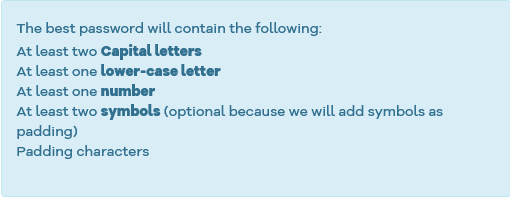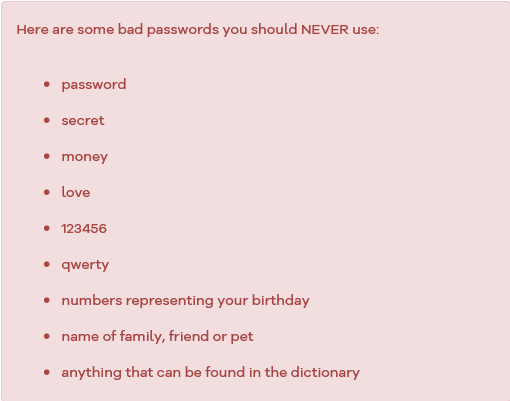Password Selection
A good password is easy to remember, but hard to guess.
What Makes a Good Password?
1. Length
A longer password is harder to guess - make your password as long as possible to help keep your information safe.
2. Complexity
Adding numbers, symbols and mixed-case letters makes it harder for would-be snoops or others to guess or crack your password.

Writing down your password is a common security risk but might be necessary (especially for infrequently-visited sites) - if you do write down passwords, do not leave them in plain sight! (A notebook in a locked drawer might be a good place for these.)
3. Memorability
Coming up with and then remembering such a password can be difficult - one good method is to start from a phrase you will remember (preferably one unique to you) and modify it to make it as secure as possible:
"Our wedding song was "I Will Always Love You" by Whitney Houston."
The first letters of this phrase would be:
Owsw"IWALY"bWH
If you substitute a zero for the capital "O" and a numeral one for the capital "I" you get:
0wsw"1WALY"bWH
You thus already have numerals, special characters and upper and lower case letters - you can add padding (say an exclamation mark at each end) and arrive at an even tougher password to crack.

It is acceptable to make a few different passwords and reuse them for different sites and devices. Just be sure that you don't reuse your most important passwords.



 Svenska
Svenska